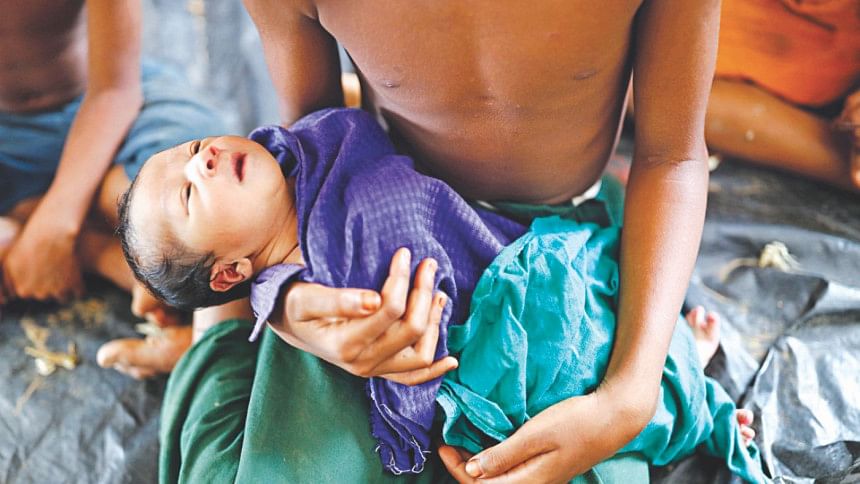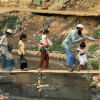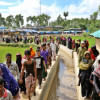Rohingya Camps: 48,000 babies to be born this year

More than 48,000 Rohingya infants are expected to be born in Bangladesh this year and would be exposed to different diseases and malnutrition since birth that might cause untimely death by five, warns Save the Children.
They will begin their lives at the refugee camps and makeshift settlements where families rely on food rations to survive and live in flimsy tents made of plastic and bamboos, it says in a report released yesterday.
According to the Needs and Population Monitoring Report, approximately 4.9 percent or 42,516 women of the total Rohingya population in Bangladesh (867,673) are pregnant.
It is estimated that 15 percent of them will suffer miscarriage, meaning there will be an estimated 4,015 live births per month or 48,184 live births in 2018, Save the Children says.
Children make up approximately 58 percent of the 655,000 Rohingyas, who fled violence in Rakhine of Myanmar to Bangladesh since late August last year.
"We're expecting about 130 live births per day in 2018. Most babies will likely be born at home in basic tents, in part because of the shortage of quality, 24-hour health facilities able to handle and manage basic emergency obstetrics, as well as challenges accessing healthcare," said Rachael Cummings, the aid group's health advisor in Cox's Bazar.
"The camps have poor sanitation and are a breeding ground for diseases like diphtheria, measles and cholera, to which newborn babies are particularly vulnerable. This is no place for a child to be born.
"The disadvantage these newborn Rohingya babies will face, by virtue of the situation they are born into, is truly heartbreaking. From the very beginning they will battle odds stacked against them, living in an overcrowded environment where everyone is desperate for help."
Aid organisations like Save the Children are doing all they can, but the needs are simply enormous and they do not have enough resources and funding to ensure every mother and child receive the medical care they require, the report says.
"We urge the international community to step up and provide funding for this response so that vulnerable Rohingya children and families continue to receive the support they so desperately need," Rachael Cummings added.

 For all latest news, follow The Daily Star's Google News channel.
For all latest news, follow The Daily Star's Google News channel. 








Comments